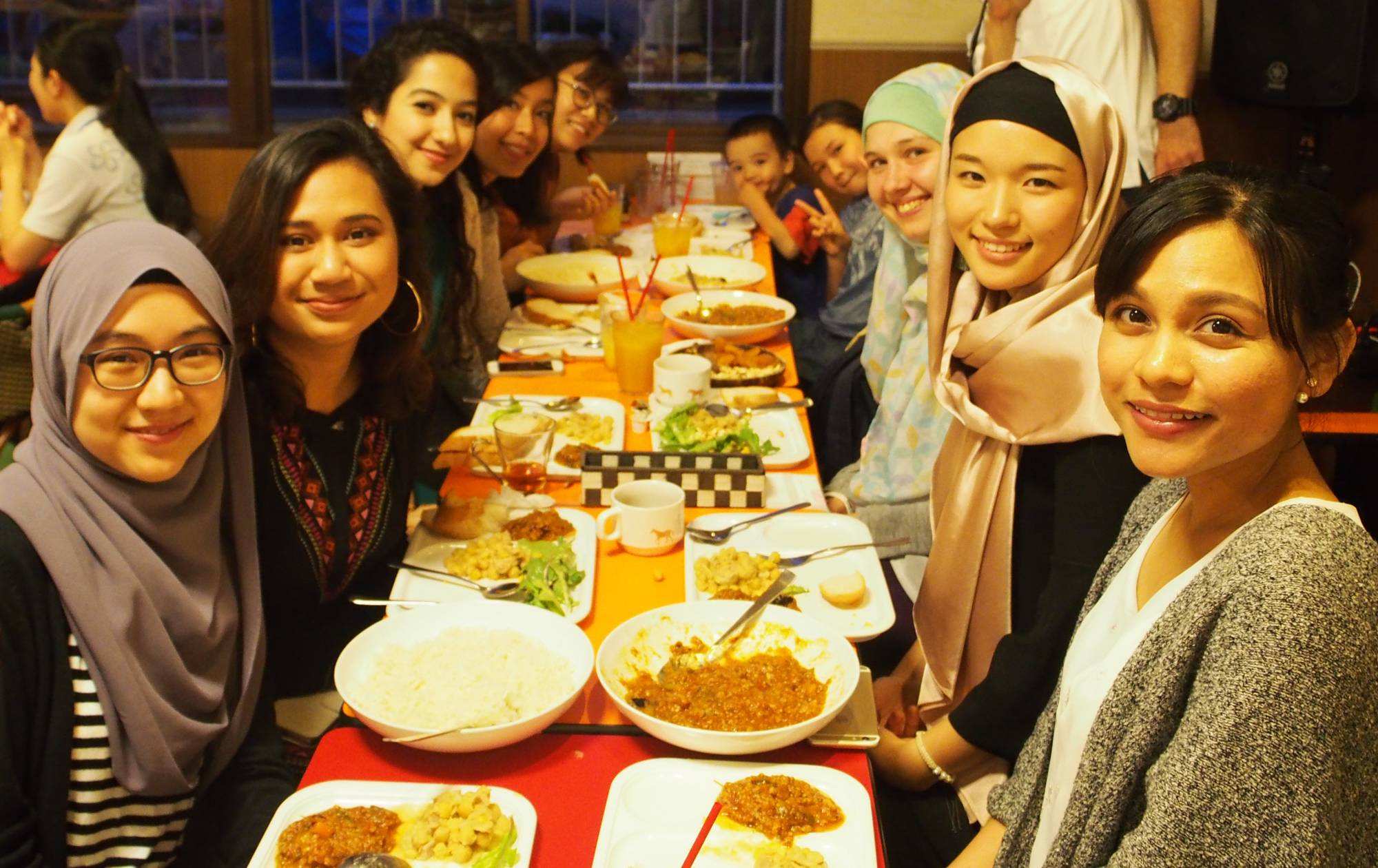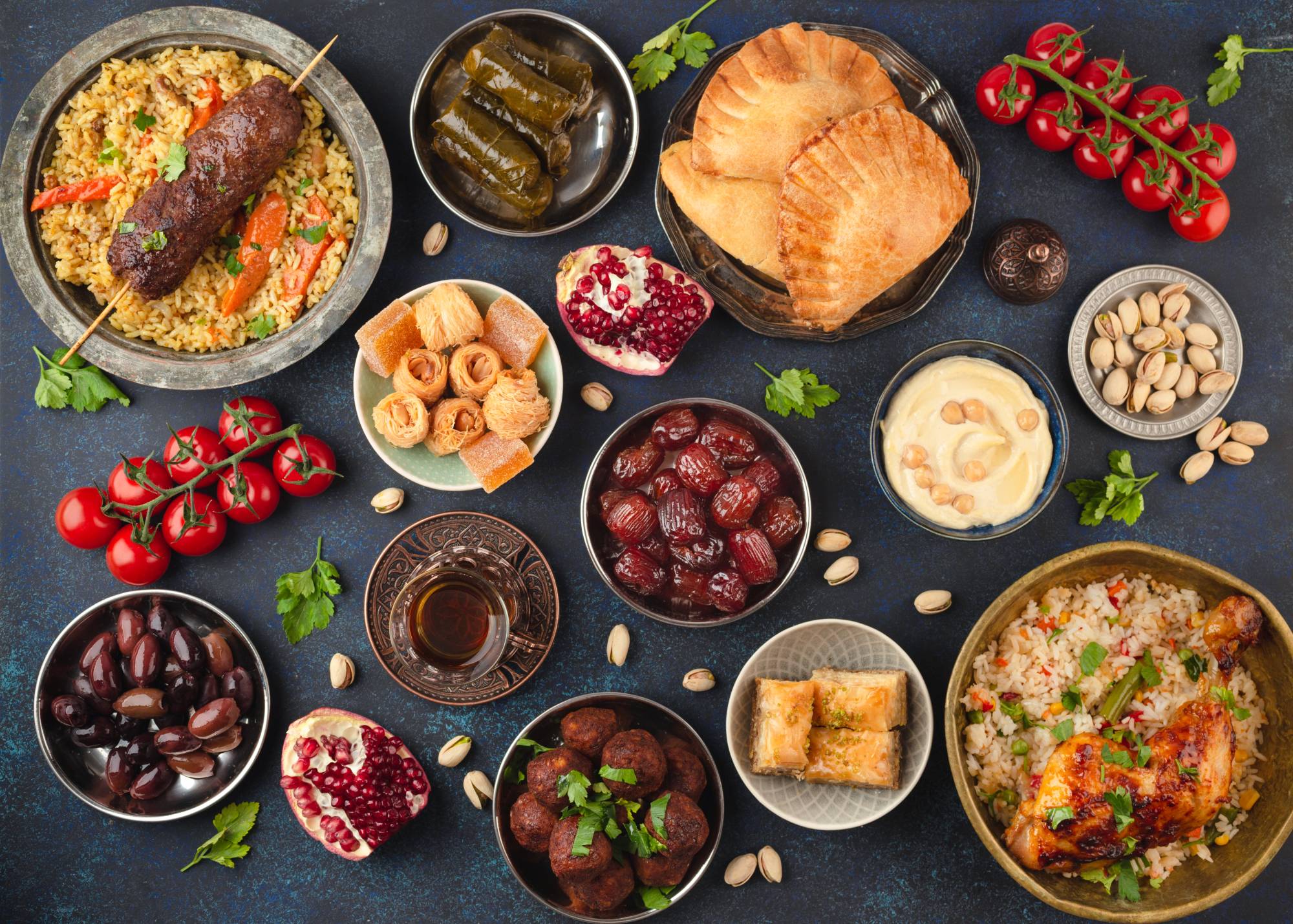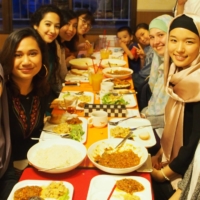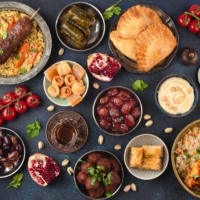After a month of prayer, fasting and other spiritually orientated activities, Muslims around the world commemorate the end of Ramadan with the festival of Eid al-Fitr.
The traditions and ceremonies of Eid vary as widely as the societies where Islam is found. That said, the day usually involves morning prayers at a mosque, followed by a celebratory meal to mark the end of the Ramadan practice of dawn-to-sunset fasting. Family and friends gather at their homes for private celebrations, or larger events may be held for the entire community. Charitable giving is often a part of Eid, and in some places a tradition of parents giving gifts of money to children is common.

Muslims in Japan will of course celebrate this important holiday as well, which falls on Thursday this year. While the number of adherents here is not large, there are nonetheless dozens of mosques around the country. Many of these are naturally concentrated in the large urban areas, particularly Tokyo and the surrounding prefectures, but Islamic houses of worship can be found in many parts of Japan from Hokkaido down to Okinawa.
As one of the most important religious holidays of the year, Muslims in Japan traditionally attend their local mosque for Eid and other ceremonies to mark the end of Ramadan. This year, however, the pandemic is making it difficult to hold large gatherings. With the state of emergency extended and expanded to more prefectures, limitations on public gatherings remain in place. One publication aimed at Muslims in Japan has urged adherents to prepare for different contingencies in carrying out the observances of Ramadan and Eid.

Tokyo Camii, a striking domed structure with a 48-meter-high minaret located in Shibuya Ward, Tokyo, is the largest mosque in Japan. It was originally built in 1938 and rebuilt in 2000. This year, Tokyo Camii organized an extensive program of online events for the holy month, including live-streamed recitations from the Quran as well as prayer events. Due to the continuing state of emergency, the mosque canceled in-person Eid prayers this year.
With the virus situation continually evolving and each prefecture under different rules, individual mosques have planned for Eid based on their local situation. This may not be the year for big celebrations, but it could provide opportunities for more intimate gatherings.
Regardless of what is happening in the world, a special meal is one of the hallmarks of Eid, being as it is the end of an extended period of strict fasting from dawn to dusk. Meals to break the fast are held in the evening before the Eid prayers begin the next morning. Eid al-Fitr is sometimes called the “sweet Eid” because of the prevalence of sugary dishes for the celebratory meal in many areas. This is in contrast to another Islamic holiday, Eid al-Adha, which is known as the “salty Eid.”
For non-Muslims, taking part in or observing the events of Eid can be a chance to experience a different culture without having to leave Japan, something that is even more valuable in this time of restricted international travel. Whether witnessing prayers in a mosque or sampling new delicacies at an Eid feast, it is a fascinating way to witness how Japan’s Muslims have built thriving communities here.
Check https://tokyocamii.org/ for more details. Information on other mosques around Japan can be found at https://muslim-guide.jp/mosque/.
Download the PDF of this Eid al-Fitr Special






